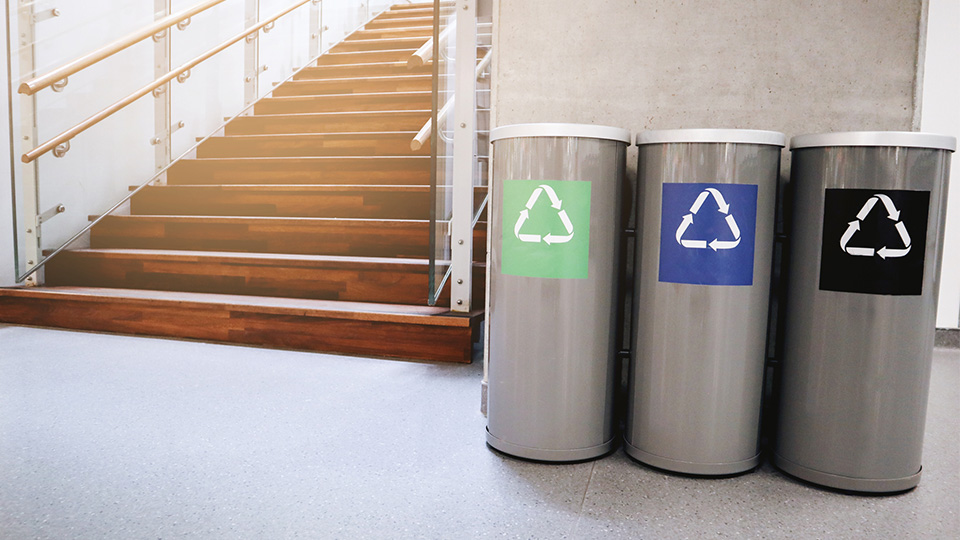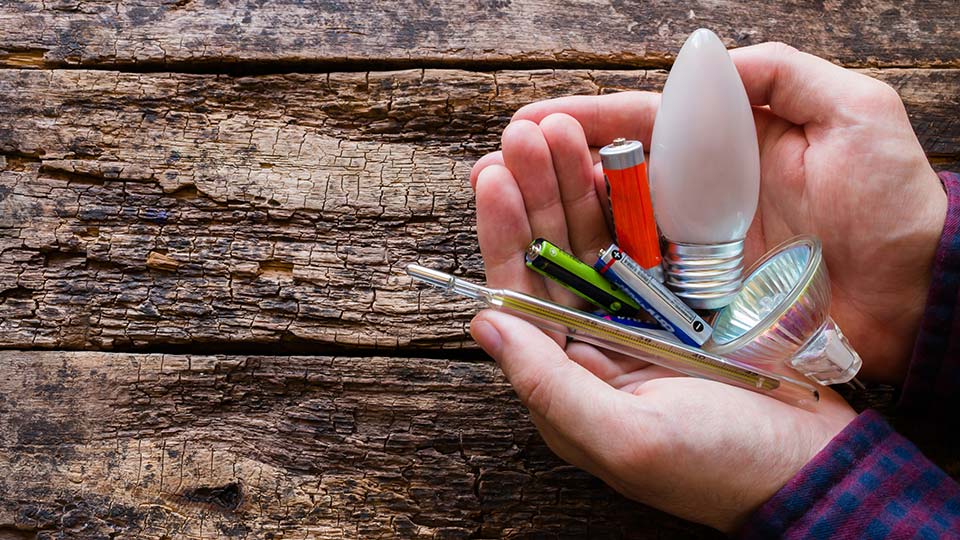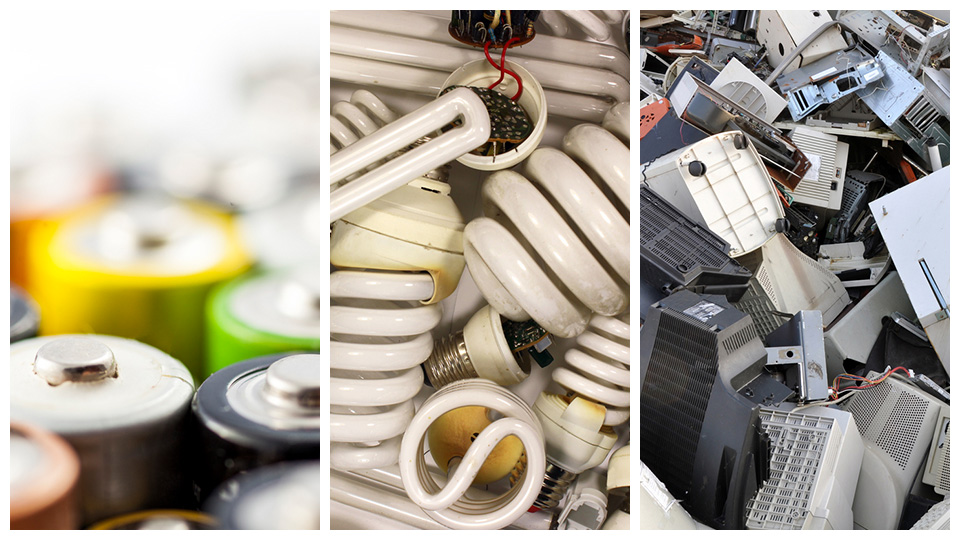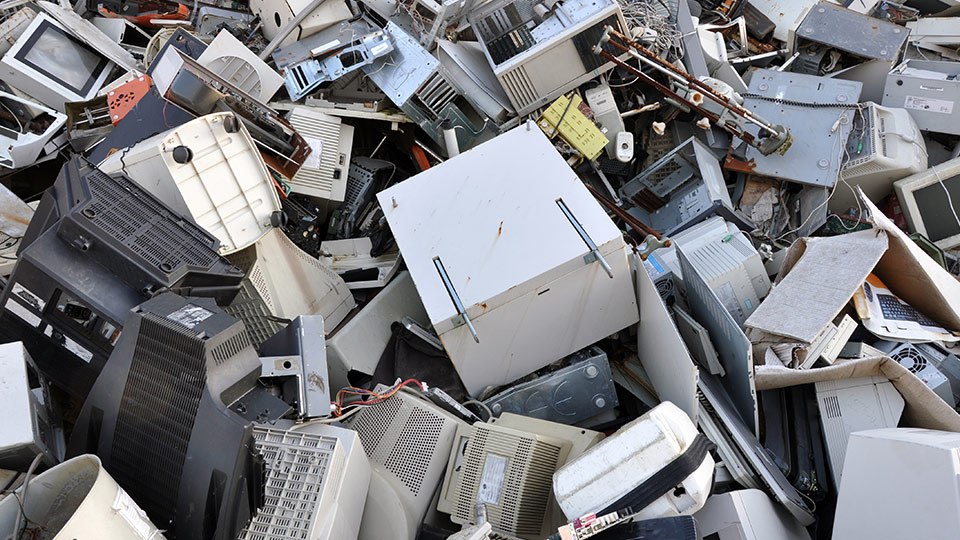
How to promote recycling in the workplace
Workplaces are taking recycling more seriously these days, but successful recycling programs hinge on staff engagement and making it as simple as possible. Companies and
Button cell batteries are used in a wide variety of everyday items like hearing aids, watches and calculators. Many children’s toys are powered by, or use, button batteries to produce light or sound effects. In Australia, one child a month is seriously injured after swallowing, or inserting a button battery. These pose a severe risk of injury, can lodge in a child’s oesophagus, and the electrical current is triggered immediately, by salvia, which causes a chemical reaction. This reaction can cause severe burns and other injuries in as little as two hours after swallowing.
We suggest you put button cell batteries in an ‘out of reach’ child resistant container and recycle them at your nearest drop-off point, taking your container home for re-use.
The most common types contain mercury, lithium, silver and other hazardous wastes.
These batteries are sorted by chemistry type and further processed after this.
Mercury and silver based button cell batteries that are dumped in landfills or incinerated will leak mercury toxins into water supplies and food chains. They should be recycled and not put in with normal trash.
Most watch repairers will take these batteries for recycling. Stores like Mister Minit, and Watch Works accept button cell batteries for recycling and replacement.
To meet the growing recycling needs of lithium batteries Ecocycle is investing, through its Ecobatt subsidiary, in a $24 million recycling operation to concentrate on the extraction and processing of mercury from these batteries. The proposed plant would have a capacity to process 6,800 tonnes of mercury per annum, operating one seven-hour day shift, 48 weeks of the year. If required, the company could ramp this up to 13,600 tonnes per year, with the addition of a second shift. Globally these plants are generally running 24 hours a day with the capacity to process over 20,000 tonnes per. year
Button cell batteries contain a range of valuable, and sometimes toxic materials. Safe recycling ensures these materials are kept out of the environment and retained in economically useful applications. Recycling also reduces the need to mine raw materials and the risks associated with resource extraction.
Sister company Ecobatt will handle the recycling of button cell batteries. These will be transferred to Ecocycle where they will be treated, and the mercury and silver recovered with the former being reprocessed through the Ecocycle MRT distillers.
Button cell batteries don’t take up much space, or our pre-paid battery buckets provide an ideal solution for businesses generating up to five litres of battery waste per year. To get started give us a call on 1300 32 62 92 or contact us.
Button cells can be mixed other cell-type batteries in our pre-paid collection buckets.
Button cell batteries are a little known but severe risk for children. Every week about 20 children in Australia present to hospitals with exposure by ingestion or insertion of button cell batteries. Chemical reactions can cause severe burns internally resulting in serious injury or death.
Keep these batteries out of sight and reach of small children. If you don’t have a battery collection bucket that is stored in a child-proof cupboard drop of used batteries at a collection centre as soon as possible. Even flat batteries can still be dangerous.
Call the Poisons Information Hotline – 13 11 26 – for treatment information.
Thanks to our systems, thousands of businesses across Australia are doing their part to keep batteries and other hazardous waste out of our landfills.
With purpose built facilities in every state, Ecobatt can provide a battery disposal and collection solution for you, wherever you are located in Australia.

Workplaces are taking recycling more seriously these days, but successful recycling programs hinge on staff engagement and making it as simple as possible. Companies and

Recycling mercury-containing waste goes a long way in protecting the environment, but did you know that there are additional benefits? Mercury is found in some

Whether it’s a huge national park or a small local reserve, parks and gardens improve our wellbeing and play an important role in creating a

Across three chilling episodes of the ABC series War On Waste, Craig Reucassel lifted the lid on several of Australia’s dirty little secrets. Sorry, make

Wouldn’t it be great if recycling batteries, lighting waste and electronic waste (e-waste) was as easy as recycling our plastic bottles and newspapers? Unfortunately, that’s
"*" indicates required fields

Contact us on 1300 32 62 92 or get in touch with us online.
© Copyright Ecocycle 2022. All rights reserved. | Site by The Faith Agency